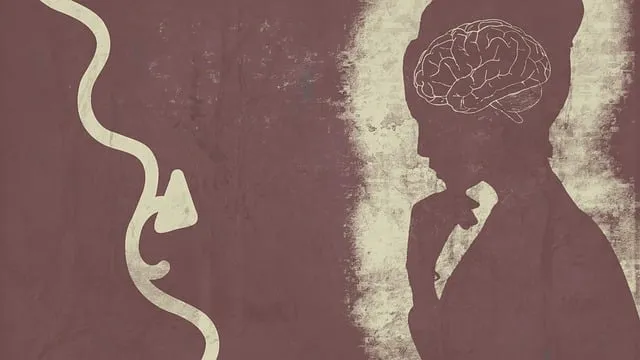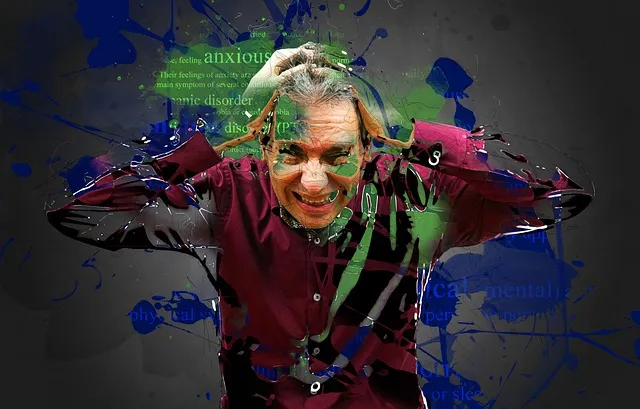Denver Kaiser mental health classes offer a holistic approach to trauma support, addressing emotional distress and safety concerns through evidence-based practices like Compassion Cultivation, CBT, and mindfulness. These classes foster cultural sensitivity, self-care routines, and resilience, empowering individuals to overcome barriers like stigma and lack of awareness. Healthcare providers are encouraged to prioritize self-care to prevent burnout and deliver compassionate care to trauma survivors.
Trauma, an invisible wound, affects individuals across diverse communities. Understanding its profound impact on mental well-being is paramount. This article explores strategies for enhancing trauma support services, focusing on Denver Kaiser’s innovative mental health classes as a model program. We’ll delve into the barriers to accessing support and present actionable strategies for effective implementation. By examining these aspects, we aim to improve resources for those navigating trauma’s aftermath, highlighting the transformative potential of tailored interventions like Denver Kaiser’s classes.
- Understanding Trauma and Its Impact
- Denver Kaiser's Mental Health Classes: An Overview
- Accessing Support: Barriers and Strategies
- Effective Trauma Support Services Implementation
Understanding Trauma and Its Impact

Trauma is a profound and complex experience that can have lasting effects on an individual’s mental health and overall well-being. It stems from various sources, including severe accidents, violent incidents, natural disasters, or prolonged exposure to distressing situations. The impact of trauma goes beyond mere physical injuries; it often leads to emotional and psychological distress, disrupting one’s sense of safety and security. Many individuals struggle to cope with these feelings, which can manifest as anxiety, depression, flashbacks, or avoidance behaviors.
In Denver, Kaiser mental health classes play a pivotal role in supporting individuals who have experienced trauma. These classes are designed to foster a safe and supportive environment where participants can learn effective coping skills development, essential for navigating the aftermath of traumatic events. Additionally, cultural sensitivity in mental healthcare practice is paramount, ensuring that services meet the unique needs of diverse populations. Incorporating practices that promote self-care routine development for better mental health further empowers individuals to build resilience and restore a sense of balance after trauma.
Denver Kaiser's Mental Health Classes: An Overview

Denver Kaiser offers a unique and holistic approach to mental health support through its comprehensive range of classes designed to empower individuals in managing trauma. These classes, led by experienced professionals, delve into evidence-based practices such as Compassion Cultivation and Emotional Regulation techniques, providing participants with valuable tools for healing. The curriculum is meticulously crafted to foster a safe and culturally sensitive environment, ensuring that every individual feels heard and respected during their journey towards mental well-being.
By incorporating aspects of Cultural Sensitivity in Mental Healthcare Practice, Denver Kaiser’s Mental Health Classes cater to a diverse range of learners, recognizing the impact of cultural backgrounds on one’s experience of trauma. Through interactive sessions, participants gain insights into self-care strategies tailored to their specific needs, fostering resilience and promoting long-term mental health.
Accessing Support: Barriers and Strategies

Accessing support for trauma is a vital step towards healing, but it can often present several barriers for individuals seeking help. In Denver, Kaiser mental health classes offer a promising solution, providing accessible resources for those dealing with traumatic experiences. However, reaching out for assistance might be challenging due to various reasons, such as stigma, fear of judgment, or even the lack of awareness about available services. Overcoming these obstacles requires strategic initiatives and increased community engagement.
To improve accessibility, organizations like Kaiser should promote their mental health classes through diverse channels, ensuring that vulnerable populations know about the support they offer. Educating people on self-esteem improvement techniques can also encourage individuals to take initiative in managing trauma. Additionally, providing crisis intervention guidance and conflict resolution techniques within these programs empowers individuals to cope with traumatic situations effectively. By addressing these barriers, Denver Kaiser mental health classes aim to create an inclusive environment, fostering healing and positive mental well-being for all those in need.
Effective Trauma Support Services Implementation

Effective Trauma support services require a holistic approach tailored to meet the unique needs of individuals affected by traumatic experiences. In Denver, Kaiser mental health classes have emerged as valuable resources, offering specialized programs designed to enhance resilience and promote healing. These classes often incorporate evidence-based practices such as cognitive behavioral therapy (CBT), mindfulness techniques, and self-awareness exercises to empower individuals in managing their trauma responses. By fostering a safe and supportive environment, participants can develop effective coping strategies for anxiety relief and improve overall well-being.
For healthcare providers, burnout prevention strategies are essential alongside these support services. Engaging in regular Self-Awareness Exercises and adopting healthy work-life balances can mitigate the risks of professional exhaustion. This approach not only benefits the providers’ mental health but also ensures they remain effective in delivering compassionate care to trauma survivors, creating a positive cycle of support and recovery.
Trauma support services play a pivotal role in helping individuals heal from adverse experiences. By understanding trauma and its impact, we can ensure effective implementation of services like those offered by Denver Kaiser’s Mental Health Classes. Overcoming barriers to access requires strategic approaches that cater to diverse needs. Through comprehensive training and accessible resources, we can create a supportive environment, revolutionizing care for trauma survivors and fostering resilience in communities.






